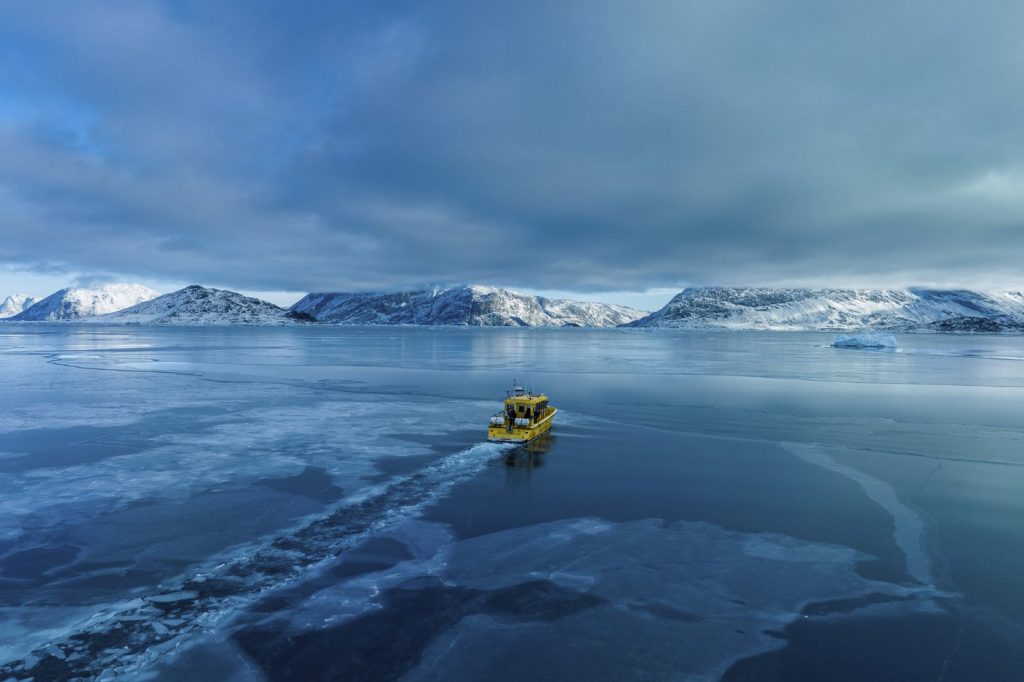NUUK, Greenland (AP) - Lisa Sólrun Christiansen, a 57-year-old knitter based in Nuuk, wakes up at 4 a.m. every day to craft thick wool sweaters that display colorful patterns and represent Greenland's traditional Inuit culture. However, her morning routine has been disrupted by constant news about U.S. President Donald Trump's intentions regarding Greenland. Christiansen expressed her feelings of being overwhelmed by the situation, reflecting on the challenges her homeland faces.
Christiansen, whose heritage includes both Inuit and Danish roots, has deep ties to Greenland, particularly since her father designed the country's red-and-white flag. She remembers him sharing hopes on his deathbed that the flag would unite the Greenlandic people, highlighting the emotional significance of national identity in the face of external pressures.
As Greenland, a self-governing territory of Denmark, grapples with the implications of global warming unlocking Arctic access, there is growing anxiety among residents. Greenlanders are increasingly concerned that their homeland has become a strategic pawn in geopolitical competition among the U.S., Russia, and China. Many fear that Trump's ambitions to control Greenland—notably rich in mineral deposits and strategically located—could hinder their aspirations for independence.
The situation escalated when Usha Vance, wife of U.S. Vice President JD Vance, announced her upcoming visit to participate in Greenland's national dogsled race, exacerbating local tensions. This announcement came mere days after Trump expressed his desire to annex Greenland. Critics, including outgoing Prime Minister Múte Boroup Egede, condemned the visit as a show of U.S. dominance, emphasizing the need to respect Greenland's integrity and democratic process.
Since becoming a part of Denmark in 1721, Greenland has been gradually moving toward independence, a goal supported by many residents. They are wary of replacing Danish governance with American oversight, which raises questions about their ability to control their destiny amidst rising international tensions, especially as Trump views Greenland as vital to U.S. national security.
Geopolitical experts note that Trump’s approach may have inadvertently solidified Greenland's national identity. Otto Svendsen from the Center for Strategic and International Studies emphasized that Greenlanders are feeling a stronger sense of pride and self-determination in light of external pressures, contrary to Trump’s expectations.
While international dynamics shape this discourse, Greenlanders have aspirations for autonomy. Under the 2009 Greenland Self-Government Act, Denmark acknowledged Greenland's right to seek independence at a pace of their choosing. This self-determination is further affirmed by the United Nations charter, a foundational element of international law to which the U.S. is a party.
Amidst the complexities of independence and foreign relations, Trump appears more invested in U.S. economic and security interests rather than the rights of smaller nations like Greenland. His statements reveal a focus on asserting control over territories he deems critical, including Greenland—home to about 56,000 residents, predominantly of indigenous Inuit descent.
Despite the geopolitical strain, many Greenlanders continue to welcome American visitors, influenced by a historical context where the U.S. effectively occupied the island during World War II. The long-standing military presence and previous proposals to purchase Greenland underline the strategic importance ascribed to the territory by U.S. leadership.
Trump's advocacy for close ties with Greenland has found some supporters, such as Jørgen Boassen, who advocates for stronger U.S.-Greenland relations while still desiring eventual independence. Boassen's vision resembles the free-association agreement the Marshall Islands negotiated, allowing for sovereignty alongside U.S. defense oversight.
Regardless of the outcomes, the prevailing sentiment among Greenlanders is a collective desire for self-determination. Christiansen encapsulates this sentiment, stressing the importance of unity among her people as they navigate an uncertain future shaped by international pressures. The intertwined narratives of culture, identity, and autonomy illustrate Greenland's complex position on the global stage.










